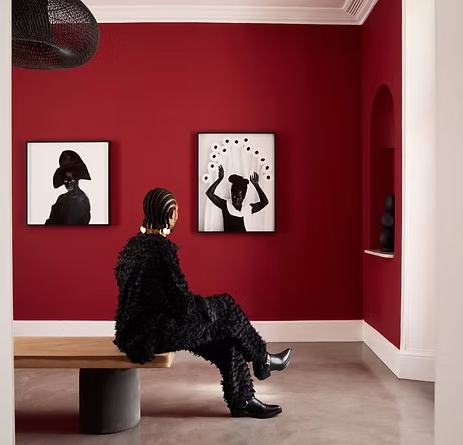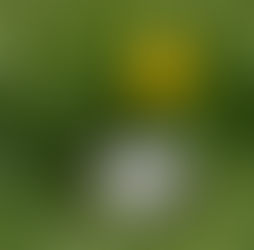How These Two Friends Are Transforming South African Education With Delta App
- BY MUFARO MHARIWA

- Sep 24, 2025
- 5 min read

When Raphael de Sousa and Tiago Brazier describe the birth of Delta Education, they do so with the quiet amazement of people who have built something far larger than they first imagined. What began as a personal coding experiment while they were still university students is now a free Maths and Physics app with more than sixty thousand downloads, changing classrooms across South Africa.

Raphael was the first to take the plunge. “During lockdown I started coding, taught myself online, pretty much just YouTube videos and stuff,” he says. “I began making some prototypes, just basic algorithms to solve physics and Maths problems so I could check my homework. I realised it could help teachers and other students. Then I spoke to Tiago about it and he was like, oh, this is cool, we should do this, build this thing. I had to learn how to develop for Android and iOS, so that took a little bit of time. I’d say I had the idea around March, when COVID started, and by September I had published my first app on Android. That app was horrible; it looked awful, all grey, so I spent months changing colour schemes and things to make it more user-friendly.”

Tiago remembers the next phase with a grin. “There were a lot of sleepless nights," he says. “We actually built this in his garage, funny enough. I’d go to his house during school holidays and stay for three or four days, and across those four days I’d probably get about twelve hours of sleep. We’d start working at two in the afternoon, break for supper, then go back. The next time I left his garage, we were watching the sun come up.”
The hardest part, Raphael says, was teaching the app to think like a person. “Building the calculators and the algorithms was difficult. No one really has made something similar. It was about getting a computer to do exactly what you would do when you solve a question. If you know how to solve the question and you know how to code, you can put that together, but you have to decide what the question needs, what happens if there’s too little information, whether it might converge to a different solution and give the wrong answer. Then you have to write the code and find the syntax that works, while dealing with all the little background things that apps need and the errors that pop up every time you run it.”
Deployment brought its own headaches. “Just getting rejected by Google Play,” Tiago says, shaking his head. “If there’s something tiny, even one pixel off, the app gets rejected for weeks at a time. That was a struggle.”
When they launched, neither expected the scale of what followed. “Initially we probably didn’t think it would get as big as it did,” Raphael admits. “Then we thought, okay, maybe this might actually be something important for people. But there were long stretches where nothing seemed to happen, so the motivation goes up and down. It depends on the season, when schools download it, if we have a few good leads. We just keep going to see how far we can take it, how many people we can help.”

Teachers quickly became some of their most vocal supporters. I tell them how my own mother, a teacher, now uses Delta to find past papers instead of paying for downloads. Raphael nods. “That’s what we do it for. It’s helping so many teachers. Most teachers have to compile their own papers and finding resources is very difficult. At first I even thought this could help teachers create memos from our problem-solving calculators. Then we realised it could help students too, and there are more students than teachers, so we focus on both. When we visit schools to donate calculators, teachers tell us how we can make the app better, like adding a classroom feature.”
Their school visits reveal both need and hope. “A lot of stories are almost heartbreaking,” Raphael says. “We’ve been to six under-resourced schools in Cape Town. Some teachers tell students to choose subjects they will do better in. We heard of two learners doing Pure Maths who had to leave their school in matric because there were only two of them. Imagine leaving in your final year just because you want to do Pure Maths. Other students didn’t do Pure Maths but still dream of university.”

Tiago adds, “Many students believe university is not for them, and we want to change that narrative. Seeing a whole classroom of kids using the app on different iPads is a really cool experience, it’s impacting people in ways we didn’t even think of.”
One visit stays with Raphael. “At a boys’ campus we asked if anyone had questions about university life or scholarships. At first everyone was quiet, then hands went up. Groups of guys started asking how to start coding. One said he had never had anyone to speak to about it. There’s so much potential but they think it’s too daunting or they have no one to guide them. We tell them, just start. Maths and Physics are a strong starting point to get opportunities when it comes to university. That’s why we focus on those subjects.”
Public recognition has helped their reach. “We made it onto News24 around March,” Tiago recalls. “They did a story about Delta and our calculator donation campaign. Then we went to speak on the radio. Later that day I got a message from Zulaikha at iSchool Africa saying, ‘Hey, we heard you on the radio, let’s talk.’ From there we had meetings. We’re not formal partners, but we’re implemented into their programmes, and their disability and inclusion programmes at several hospitals.”
Their ambition extends well beyond Maths and Physics. “We intend to add more subjects and eventually cover everything from Grade 1 to Grade 12,” Raphael says. “There’s also the possibility of university work.” Tiago continues, “One of the most exciting initiatives is to expand the app into all South African languages. That comes with its own challenges, so we’re trying to collaborate with people to make that happen.”
Scaling will require support. “Definitely government or private sector help could make a difference,” Raphael says. “At the moment it’s just us, and our reach isn’t anything like a government or corporation. We are speaking to experts about language translation because no one has done it yet. We think it would be vital to learn in your home language.”
Keeping the app free is non-negotiable. “We’ve been stubborn about that,” Raphael admits. “We want it accessible to people who need it, not just someone at a private school with the most expensive phone. Every time we pitch, people ask how we are making money. It’s demotivating, because we know revenue will come later but impact comes first.” Tiago agrees.
“While our costs are low, to keep the initiative running we’ll need partners, businesses or government. We’re starting to chip away at that and change the narrative. At the recent Allan Gray Orbis Foundation and E Squared Investments Founder’s Pitch Validation Section we actually won, and they didn’t focus so much on revenue because they understand we’re trying to make a social impact.”

As the conversation winds down, the two young founders reflect on the road ahead. They dream of a platform that remains free, covers every subject, and is available in every South African language. “We’re not trying to exclude anyone,” Tiago says simply. “That’s the point.”
From late-night coding sessions to classrooms full of eager learners, their story is proof that with determination and a clear mission, two university students can reimagine what education access looks like for an entire country.




























































